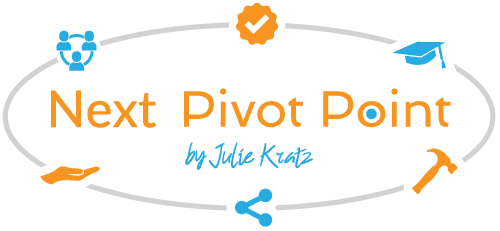Allies coach by creating space for self discovery
Coaching may feel like a term we use primarily in sports arenas or in professional settings around career or leadership development, but coaching can also have a profound impact in our personal lives. Early in my career, a wise leader advised me to “coach to success.” I remember him asking me tons of questions when I came to him with challenges and I was extremely frustrated thinking, “why won’t he just tell me what to do?”. Over time, I learned how to answer my own questions. This leader listened, posed questions, and helped me self-discover the path forward. Leaders who believe their team members have the answers within themselves practice an ask vs. tell approach and will win in the long run. Let’s talk about how you can apply some of these key coaching skills in your personal life as an ally.
Coaches create space for others to learn and grow
This is how we multiply as allies. By modeling the behavior we expect of others. One of the deepest most primal human needs is to feel seen, heard, and feel like you belong. When someone creates space for us to feel seen, heard, and belong, it unlocks our humanity. We can share ideas that we’re not confident about, we can solve problems we didn’t think we’re able to solve, and we can be vulnerable about our shortcomings and challenges with others.
Coaches don’t judge people for what they share. They protect the privacy of others and maintain confidentiality. They simply sit back and listen, and ask questions to promote self-discovery. Sports coaches give motivational speeches with a lot of instruction, are responsible for instilling a work ethic, and skill development of their teams by contrast.
Coaching as an ally is different. It’s more about helping someone motivate themselves and not giving them the answers. It is helping them solve their problems on their own. This is a much more sustainable approach as an ally. If we constantly save the day for people, give them advice, tell them what to do, they’ve only learned to come back to us for solutions. This can be exhausting as an ally. It is overwhelming to feel like you have to solve people’s problems or feel pressure to know what to say or do in situations.
Allies sit with others in their pain.
It is kind (and difficult) to refrain from giving advice. Sometimes what someone needs from you, and the best way you can show up as an ally, is to sit with someone in their pain. When we sit with someone and experience their problems and challenges with them, they feel less alone. It can feel isolating to not feel included for someone that feels like they’re being marginalized because of a dimension of diversity. Rarely do people want someone to wave a magic wand for them and save the day. They want to be heard. They want to feel like you understand their problem or challenge. It is kind to empathize with their situation versus try to problem solve for them.
As humans, we are wired to solve problems quickly. We don’t like to experience problems we don’t know how to solve. That’s why our brain jumps right to conclusions and we don’t work our way down the ladder of inference to examine all of the information. It’s painful to experience pain. Our brain doesn’t want us to feel bad. We like to put Band-Aids on gigantic wounds.
When allies see someone hurting they dig deeper vs. gloss over.
Allies resist the urge to just quickly make it better for the other person. By staying curious and listening to actually learn, versus listening to respond, you’re going to get to learn more about the root of a problem. Any ally will feel the pain with the person, versus avoiding and bandaging the pain. They see pain as a vehicle to move forward faster. By exploring pain and digging deeper into root causes, coaching can bring more allies into the DEI conversation.
Allyship is about listening vs. advising
Coaching is more about listening than advising. Take your ego out of the conversation and focus on the person who is having an issue. When people are in pain they want to be heard, they want to be seen and they want their pain to be validated. It’s not about asking why that happened to them, victim blaming, or telling them what you would have done in that situation. Instead, active allies offer a listening ear. They listen with positive intent, curious to understand and help the person come up with their own solution to their own problem. People are more likely to take action on their own ideas for the ideas of others.
Want to do better, and not sure where to start? That is why we developed the Lead Like an Ally virtual self-paced training program, perfect for organizations struggling with accountability for diversity. You can also check out all of our other virtual and live program offerings.

